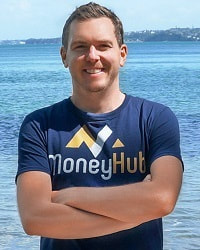How Rich New Zealanders Invest Their Money - The Definitive Guide
Our guide explores how the wealthy invest in Managed Funds, KiwiSaver and Shares as well as exploring Private Banking, Credit Cards, Patronage, Charitable Activities, Venture Capital and Political Donations.
Updated 15 July 2024
Summary
Our guide focuses on:
Disclaimer: This list does not constitute financial advice, and the examples listed below are included for illustration only. Our guide is journalistic in nature. and we stand by our shortlist. There is no "best investment for wealthy people" - each asset class has specific risks, pros and cons. This is simply an exercise to raise awareness. We do not suggest you invest in any of the asset classes listed below.
Know This First: Capital Gains, FIF, Reinvestment and Wealth Creation
- Our guide to how wealthy New Zealanders invest is the first of its kind and is exclusive to MoneyHub.
- We do not define 'wealthy' in dollar terms. To do so would be disingenuous and reduce the value of our findings. Wealthy to one person will mean one amount and a very different amount to another.
- Research has proved that wealthy people don't care about keeping up with the "Joneses". Upgrading lifestyles is not a factor - people become wealthy because they are passionate about what they do and work hard, take risks, play a long game and chase opportunities. They then stay wealthy by diversifying their investments and spending less than they earn. They tend to also ignore "tips" and "advice" from the media and family and friends. This is, unsurprisingly, very different from the decision-making process seen by many first division lottery winners.
- Many wealthy New Zealanders also rely on financial advisors to help them plan for tomorrow and for the distant future. They, generally, don't look at what their friends are doing and instead invest for the long-term and stay calm during market ups and downs.
- While real estate is a major driver of wealth in New Zealand, but this is not responsible for the super-wealthy. We believe real wealth has been created in productive assets such as farming, engineering, manufacturing, construction, technology, financial services, retail and tourism businesses.
- Wealthy New Zealanders invest in assets just like anyone else; managed funds, shares, term deposits and a bank account. However, their money may go into other areas, including patronage and charitable activities, venture capital and political donations. Many also regularly contribute to KiwiSaver. Our guide explores these opportunities (and many more).
- We have excluded obvious (and not obvious) investments favoured by wealthy New Zealanders, including, but not limited to, real estate, wine, specialist assets, property, sports team ownership and art. These areas are too broad to adequately cover, and some of them are statement assets.
Our guide focuses on:
- Funds
- KiwiSaver
- Shares
- Private Banking
- Credit Cards
- Patronage and Charitable Activities
- Venture Capital (and/or buying into, or starting, other businesses)
- Political Donations
Disclaimer: This list does not constitute financial advice, and the examples listed below are included for illustration only. Our guide is journalistic in nature. and we stand by our shortlist. There is no "best investment for wealthy people" - each asset class has specific risks, pros and cons. This is simply an exercise to raise awareness. We do not suggest you invest in any of the asset classes listed below.
Know This First: Capital Gains, FIF, Reinvestment and Wealth Creation
- New Zealand doesn't have a stand-alone capital gains tax. If someone quits their job, works for several years building a company and sells it for $20m later on, that $20m of 'income' is untaxed.
- The same applies for investments held for the long term in shares – someone who bought $100,000 of Xero shares in 2010 may have sold them in 2020 for $2,500,000. Again, the income generated is untaxed.
- However, for foreign investments, Foreign Investment Fund (FIF) tax rules, introduced in 2007, are arguably a form of capital gains tax. They are intended to tax overseas shares and growth funds (although some exempt Australian shares are exempt).
- Generally, growth FIFs are taxed on a Fair Dividend Rate (FDR) basis, which means that gains (capital gains and dividends) of up to 5% are taxed at the investor's marginal tax rate.
- Individuals and trusts can choose between FDR and the Comparative Value (CV) method if the gains are less than 5%. This means an investor can choose either method across their whole portfolio.
- If, for example, your gains from your overseas investments were less than 5% or negative in a tax year, you would choose to be taxed using CV.
- Important: The rules are not easy to understand - our guide to tax on investment and savings includes more details, and you can refer to the IRD's FIF guidance here. If you have any questions or concerns, we suggest contacting a tax accountant.
- Outside of FIF, it's no surprise that you can get seriously wealthy in New Zealand by reinvesting a large amount of money into quality assets over and over. However, it's not without risks, and 'good' companies can go bust quickly, almost without warning; hence diversification is always important. Our investing mistakes guide has more details.
MoneyHub Founder Christopher Walsh outlines his views on opportunities for everyday New Zealanders who want to grow their wealth:
|
"I continue to document what investments are available throughout New Zealand, and the good news is the wealthy are not getting 'first dibs' on the best opportunities. Investors can get into (historically) top-performing funds from Milford, Fisher Funds, Pathfinder, Harbour Asset Management and Pie Funds for as little as $250 (via InvestNow).
"The big banks all offer 'private' banking services, but I don't think there's anything materially advantageous from being a customer. You will, however, have some form of bragging rights from being a 'private' client (if you're into that kind of thing). Personally, if you need to change your bank account to impress your friends, you should probably change your friends first". "Share issues and IPOs come and go; having a broker will always get you further up the line if there's a lot of interest in what's being sold. However, it's a double-edged sword as some recent IPOs have been disappointing at best and a wealth destroyer at worst (I'm talking about MyFoodBag and LayBuy, respectively)". "New Zealand is in a unique and ultimately very beneficial situation for everyday investors. First, many new investing platforms have been launched, lowering the cost of investing and accessing US markets. Secondly, there are many reputable investment firms for those who want to trust an expert to manage their money - transparency and communication are high priorities". "There will always be a 'Chairman's Fund' or a 'Diamond level' opportunity. However, and I speak from experience, larger funds targeting everyday investors have more eyes on them and, ultimately, are more valuable to an investment manager in the long term. For example, many more people have $10,000 or $50,000 to invest, but very few have $10 million. So while a 'lower' level investment may mean you're excluded from yacht invites, lunches in the Hawke's Bay or the ability to call on a personal banker and concierge service, you won't be indirectly paying for these things either". |
Christopher Walsh
MoneyHub Founder |
Your free guide to How Wealthy New Zealanders invest their money, thanks to BlackBull MarketsBlackBull Markets, a multi-award-winning broker, sets the benchmark in providing sophisticated trading solutions right from the heart of New Zealand. Known for their robust platform, BlackBull Markets enables wealthy New Zealanders to engage with various tradable instruments, including indices, metals, and energies, alongside forex and US market investing.
Why BlackBull Markets stands out:
For more details, read our BlackBull Markets Review or visit their website. |
How New Zealand's Most Wealthy Invest - Our List of 8 Options Reveals All:
Investment FundsThere are hundreds of financial advisors, funds management companies and investment platforms who will gladly take your money. Wealthy New Zealanders know who have their interests at heart and don't waste their time (and money) with 'advisor-idiots'. These are generally 'experts' who would rather put your money in a fund that pays them the most commission and go off and play golf than spend the time constructively building your wealth. We're not cynical in saying that - the industry has some fantastic advisors, but it also has some lemons.
Our list below is unlikely to be complete - we aim to give a snapshot of what's available but there are many other options. The exclusion of any fund or fund manager does not mean it's not worthwhile - we simply cannot include everything. The good news is our list of favourite managed funds include investments that are popular with high earners and long-term investors and may be a good starting point. Our list includes active fund managers (Pie Funds, Fisher Funds, Harbour Asset Management and Milford Asset Management) and index options such as Simplicity and Smartshares. Please be aware that there is no evidence to support high minimum investment thresholds producing bigger returns. Nonetheless, we list popular options below: 1. Forsyth Barr and Craigs Investment Partners Forsyth Barr and Craigs have offices throughout New Zealand. Forsyth Barr (founded in Dunedin in 1936) and Craigs (founded in Tauranga in 1984) have offices all over New Zealand. Both have been highly successful in managing their clients' money and have been around for decades. The way they operate is similar. There are low minimum investment thresholds for both, and both offer share broking services. Craigs also offers a premium investment service for anyone with more than $250,000 to invest. Many clients of both firms are wealthy and trust their advisors to make investments in their best interests. It's a loyalty that few other wealth management firms in New Zealand have been able to emulate. 2. Financial Advisors Wealthy New Zealanders usually have financial advisors who aren't paid large amounts of trail commission from one or two investment managers. Instead, the financial advisor will be independent, perhaps charge an upfront fee for their time and expertise and a separate annual fee based on the value of the investment. One wealthy investor (and MoneyHub user) shares his experience: "My wife and I have worked with the same financial advisor for over 20+ years. It's no exaggeration to say a good financial advisor is hard to come by. Many of our friends had used other firms and found themselves in products that rewarded the advisor but didn't ignite when it came to returns. I like the fact that we're not numbers but people and that we have built up a diversified portfolio that includes bank deposits, individual shares, index funds, actively managed funds and ETFs. We also own two investment properties in Queenstown, and our financial advisor helps us with financing those. I believe there are advisors, and then there are advisors. You've got to make sure you're not a pawn in the game by finding one that puts you first". Our guide to financial advisors, first published by Mary Holm and now exclusive to MoneyHub, is a good starting point in searching for a financial advisor. We also have a guide to top Auckland financial advisors based on several qualitative factors and our independent research. 3. Kernel Wealth Kernel Wealth has had significant success pioneering low-fee, US-focused index funds since its launch in late 2019 and now offers over ten funds covering ethical investing, technology, New Zealand property and global infrastructure and blue-chip. Our research team has noticed considerable inflows when analysing funds under management data, and the platform now works with financial advisors around New Zealand to help diversify wealthy clients. 4. Alvarium Alvarium Private Wealth offers a discretionary investment management service (DIMS) which invests your money in financial products, such as global funds, and charges fees for the service. Alvarium is a global investor with a local presence in Auckland and invests in a range of asset classes. It invests on behalf of a handful of wealthy New Zealanders and typically offers Enhanced Income, Conservative, Balanced and Growth funds. Alvarium also offers co-investment opportunities, typically for anyone with at least $1m to invest, including private equity and private lending opportunities. Such investments are available on a deal-by-deal basis and sourced from Alvarium’s local and global networks. |
KiwiSaverOur ongoing research produces numerous KiwiSaver guides and resources. As part of our findings, we are confident in publishing a shortlist of KiwiSaver schemes/funds that tend to be favoured by wealthier New Zealanders. We based this on the average balances of their growth funds while considering the scheme/fund's age (the thinking being older funds are, more likely, to have higher average balances as there has been more time to contribute to them). As an added point, all of the schemes below appear in our favourite KiwiSaver funds list (KiwiWRAP is not a scheme per se so does not appear). The list, in no particular order, is as follows:
1. Medical Assurance Society (MAS) KiwiSaver Scheme
2. Milford KiwiSaver Plan
3. Simplicity KiwiSaver Scheme
4. Booster
5. KiwiWRAP
|
SharesShares, i.e. investments in sharemarkets such as the NZX, ASX, Dow Jones, S&P 500, Nasdaq and FTSE, are the most popular and proven ways to grow wealth in the long term. The funds' management industry knows this and structures its business around making opportunistic investments day after day, year after year. As a result, the world's richest people have made their fortunes in buying and selling shares in top-performing companies.
Wealthy New Zealanders have long been investing in individual shares. However, the lack of 'blockbusters' companies listed on the NZX has seen many diversify into managed funds with an overseas focus. Our research team constantly receives emails from wealthy New Zealanders wanting to invest in US markets. The reason is simple – the American technology sector (think Facebook, Google, Apple, Salesforce, Tesla, Amazon and Microsoft) has created thousands of billionaires and tens of thousands of millionaires. While most of the biggest winners have been founders and early employees, Tesla's share price has risen from $35 in 2016 to $1,000 in 2021, Microsoft has moved from $55 to $335 over the same period. Investors who pick the right companies and hold for the long-term have seen their investment exponentially increase in value. Important: We have no data around what shares wealthy New Zealanders hold – none of this information is public, and it's impossible to collate it from third parties. So we can't (and would never) suggest what shares are worth investing in. However, we can say that Hatch, Tiger Brokers (NZ) and Stake's rapid and sustained success, all dedicated to US markets, shows how much New Zealand investor appetite there is for US-listed shares. Some investors may deposit $1,000, but we know others get going with $100,000, $500,000 and more. The world's richest people have most of their wealth in US-listed companies; wealthy New Zealanders know this and invest alongside them. Our guide to investing in the US markets has you covered if you want to do the same. |
Private BankingAll the main banks offer 'private banking' – we have outlined their services in a dedicated guide. In summary, the benefits generally include a personal banker you can call directly, access to a wealth management service, slightly better interest rates (for borrowing and investing), invite-only speaker evenings, sports events and other benefits.
For example, to qualify for Westpac's Private Bank & Wealth, "clients will mostly have all of their financial needs provided by Westpac NZ Private Bank & Wealth, have at least $2 million to invest or significant borrowings, have a sole base income of $300,000 or above". These numbers come from our discussions with Colin Smith (Westpac NZ's Head of Private Wealth). Even with house prices driving super-sized mortgages, the wealth to meet Westpac's threshold is considerable. While many wealthy New Zealanders apply (or take up their bank's invite) for private banking, it is arguable that New Zealand banks are not known for their investing prowess, nor their customer innovation. For anyone looking at investing significant sums of money, managed funds from trusted investment specialists may be a better starting point. When it comes to term deposits, our guide lists the best deals offered right now - private banking clients may receive slightly higher interest rates but it usually won't be more than 0.10% or 0.20% p.a. etc. Our view: The best bank account is one that suits your needs and gives you all the benefits you like. New Zealand isn't like the USA or England, where wealthy people favour smaller banks with townhouse offices and old family names. Such banks do not exist here - New Zealand only has 27 banks, none of which are private focused. Instead, wealthy New Zealanders who aren't looking to borrow money look for value and convenience from a bank account. Our guide to the best bank accounts reveals what's on offer and what it costs. Know This: It's unlikely that any specific bank account has a strong appeal to the wealthy in New Zealand. |
Credit CardsWhile not strictly an 'investment', the right credit card can be endlessly rewarding. There is one card a select number of wealthy New Zealanders have in their wallets – The American Express Platinum. It's a charge card similar to a credit card but has some subtle differences – our review of the card explains what you need to know. The card is aimed at those earning six-figure salaries and travelling extensively, and there is an annual fee of $1,250. However, as outlined in our review, this fee is somewhat compensated by the various benefits. There is no other card in New Zealand like it.
However, many wealthy New Zealanders use a standard Airpoints Dollars credit card issued either by American Express or their bank. Airpoints Dollars are, arguably, New Zealand's "second currency" and can be used extensively. For example, many business owners use AMEX Platinum Airpoints or AMEX Platinum Edge for work expenses to earn points while holding a secondary card for personal expenses. It's a fast way to earn a lot from essential everyday business and personal spending. Our view: If you have a track record of managing your finances and are disciplined in spending, a rewarding credit card is a smart investment. However, many 'secret' millionaires in New Zealand - people who have millions in shares and cash (i.e., not their house) – don't have any credit cards. Instead, they choose to spend using a debit card and not incur personal debt. Their self-control has made them wealthy in the first place, but we know this way of thinking isn't for everyone. One business owner, who asked to remain anonymous, explains how he earns 30,000+ Airpoints Dollars a year: "I own three businesses that, in total, employ over 50 people. I spend around $150,000 a month on suppliers who take AMEX and don't charge any fee on top for doing so. The credit card also integrates to Xero automatically, so nothing is missed. I earn around 30,000 Airpoints Dollars per year, which goes a long way. I've also renovated properties thanks to the Mitre 10 tie-up and have been able to buy lots of gifts from the Airpoints Store. I would suggest that any business owner looks at where they can benefit from everyday supplier payments and look to get a card". |
Your free guide to How Wealthy New Zealanders invest their money, thanks to BlackBull MarketsBlackBull Markets, a multi-award-winning broker, sets the benchmark in providing sophisticated trading solutions right from the heart of New Zealand. Known for their robust platform, BlackBull Markets enables wealthy New Zealanders to engage with various tradable instruments, including indices, metals, and energies, alongside forex and US market investing.
Why BlackBull Markets stands out:
For more details, read our BlackBull Markets Review or visit their website. |
Patronage and Charitable ActivitiesMany wealthy New Zealanders invest some of their money in helping others, where the aim is not a financial return. However, just like in the USA (as this article outlines), a lot of this money does not go towards helping poorer New Zealanders. Instead, a lot is directed to the arts, sports teams and other cultural activities.
Know this – donations and giving are usually tax-deductible. The IRD offers a tax rebate of 33.33 cents per $1 donated to registered charities; for example, if you donated $1,000 to a registered charity, you would receive back $333.33 when your tax return is completed. There are many patron programs in all corners of New Zealand. A handful of examples are listed below, with links to their respective patrons' programs, benefits and the starting annual contribution required to be a patron.
MoneyHub founder Christopher Walsh shares his views: "Throughout the years, I've been involved in theatre patronage in London and Auckland. I'm not talking about huge amounts of money, but it can be useful depending on the theatre size or production. Alongside the involvement is the benefit is that you get involved in the community and, all going well, experience some great theatre. You also meet a lot of other people who like theatre". "There are, however, always people who don't have an interest in the theatre but become patrons for status. I occasionally notice these people fall asleep during performances or leave just after the pre-drink reception concludes. If you are interested in supporting a charity or similar, I strongly suggest finding something that you care about – the charity sector in New Zealand exceeds over 27,000 registered charities, so there are plenty of opportunities". Impact investing, legacy and wills
|
Venture Capital (and/or buying into, or starting, other businesses)Many wealthy New Zealanders have become wealthy by selling a business. The life of a business owner, big or small, is usually very hands-on, and it's hard to find meaning and purpose after the business is sold and the founder(s) exit. You may think the next chapter would be endless holidays, but this is not usually the case. Many cashed-up ex-business owners want to start a new business, invest in businesses with potential, or do both.
While there are endless opportunities with angel investing (as our guide outlines here), more significant gains (and losses) come from direct investment. Successes like Xero, Trade Me, Pushpay and other New Zealand tech giants received early-stage investments from other business owners or professional investors. The reality is early-stage companies are looking for both money and investor guidance. If you want to invest $10,000 or even $50,000 into an early-stage business that has a strong product and sales traction, those amounts are unlikely to be useful or strategic for the company. Instead, founders would prefer an investor with a track record of success, an extensive network of contacts/business relationships, and a decent amount of money to invest. A handful of wealthy New Zealanders have become more wealthy by offering their services and networks to help build new businesses. The most prominent example is arguably the Huljich family, who, after selling a bacon business in the 1990s, invested in financial services, fintech, property services and other opportunities. Of course, not every investment is successful; the Huljich's foray into KiwiSaver was problematic. However, overall, the family has had significant success since selling Top Hat Bacon from reinvesting in many successful New Zealand companies. Many wealthy New Zealanders stay under the radar and invest with precision. Examples include Rowan Simpson, Rod Drury (Xero was his third fintech business), Nick Bartlett (founder of Geo and seed investor in Hnry, Crimson Education, SafetyCulture, among others) and Shane Bradley (who, after setting up Grabone, has had success with Neighbourly, Generate KiwiSaver and Designer Wardrobe). The cycle of re-investment repeats with the founders of Pushpay investing in the aggressively growing FirstAML. MoneyHub founder Christopher Walsh shares his views: "If you want to be seriously wealthy in New Zealand and don't have a portfolio of properties, starting a business that can scale is arguably the best (but riskiest) way to achieve your goal. The important factor is 'scale'. Many people start a business that relies on people rather than processes and technology, limiting the number of growth opportunities. For example, opening a clothing shop is likely to be less profitable and scalable than an e-commerce clothing venture that knows its audience and markets to them on scale. Further, launching an app that solves a pain point for eCommerce retailers is likely to be even more successful. "Ultimately, the idea is always to think big if you want to be big. As an investor friend told me, he looks for businesses with a product/service in demand first and foremost. Then, he looks at whether the selling and production of the product/service can quickly scale. Only these businesses are worth the risk. An example of where it goes wrong is when investors pile into a business with hype and no substance – even experienced and sophisticated investors get caught out, with the Theranos scandal being one example". "One prominent businessman told me that he and his wife invest carefully but still get caught out by bad founders who may convert their investment to fund their lifestyle. Somewhat revealingly, he commented, 'once he/she knows you've worked them out, they vanish and certainly don't ask for any more money'. The good news is that as New Zealand is so small, word soon around and those with arguably less-business-focused intentions for your money get left on the side of the road". "The road to riches via founding a business is long, twisty and uphill and downhill – there are no shortcuts when building a robust business. However, if you're passionate about what you do, have a product/service that people love to buy, and revel in the problems you're solving, the journey will likely be easier. Our startup guides have a lot more information to help you make important decisions early on". |
Political DonationsWhile MoneyHub is non-political, many wealthy New Zealanders' invest' in political associations. For example, a donation of $1,000 to a political party may get you invited to a dinner with the leader per our discussions with two political parties. Other wealthy New Zealanders donate more - you can see a list of those who have donated more than $30,000 here. Many are well-known names - Phillip Mills (from Les Mills), Barry Colman (publications entrepreneur), Dame Jenny Gibbs (arts supporter), Christopher Reeve (property investor), Murray Chandler (Chess grandmaster), and Roshan Nauhria (entrepreneur) are some names among many. Hundreds if not thousands of others donate below the disclosure threshold every year and are active in local and central politics.
We're unable to make any further comments on this matter other than to say political power is often sought by the super-wealthy. Nonetheless, there isn't a minimum donation to join any political party, and many people do so to meet like-minded individuals, so such involvement can bring social as well as economic benefits. |
Frequently Asked Questions
How do wealthy individuals invest?
We believe wealthy New Zealanders have a combination of managed funds, shares, term deposits and property. They may also have business interests, such as shares in a small or medium-sized company that's not listed.
What is considered wealthy in New Zealand right now?
There is no single answer, and we cannot assign a number. An example explains it best; a retiree with a $10m home about to divorce is arguably less 'wealthy' than someone who owns a $2m home with a very profitable business that is aggressively growing. Both, however, are wealthy.
Do millionaires invest in managed funds and KiwiSaver?
Yes - managed funds, including KiwiSaver, are popular and proven to be a wealth accumulator. However, not all managed funds perform as they should, and our guides explain what to look for in a managed fund.
Conclusion and Next Steps
- This guide aims to give you investing ideas. Whatever you decide to do, please make sure you always diversify. This December 2021 story of a lottery winning couple putting everything into a building company that collapsed proves why diversification is important. The wealthy can lose everything overnight.
- If you're aspiring to be wealthy, there is no shame in that. However, staying clear of consumer debt, spending carefully and investing wisely will get you there faster.
- There is no reason you can't enjoy some of the privileges that wealthy New Zealanders enjoy every day. For example, a rewarding credit card, patronage to a festival or arts program you're interested in, and perhaps working with a trusted financial advisor who puts your interests first if you're unsure what funds or shares to invest in.
- Whatever you do, take your time, consider all your options and always make sure you understand what you're investing in. You work hard and smart for your money – don't let someone else trick you so that they can spend it on themselves. Unfortunately, it sadly happens with some regularity as soon as you enter the world of private investments, angel investing and venture capital.
Your free guide to How Wealthy New Zealanders invest their money, thanks to BlackBull MarketsBlackBull Markets, a multi-award-winning broker, sets the benchmark in providing sophisticated trading solutions right from the heart of New Zealand. Known for their robust platform, BlackBull Markets enables wealthy New Zealanders to engage with various tradable instruments, including indices, metals, and energies, alongside forex and US market investing.
Why BlackBull Markets stands out:
For more details, read our BlackBull Markets Review or visit their website. |
Related guides and resources























